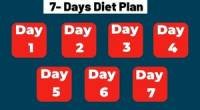Weight Loss Programs
All you need to know about weight loss programs
Are you overweight or obese and are planning to lose weight? Have you been wondering about trying weight-loss programs? Don’t worry; you are not alone. More than 1.9 billion adults throughout the world are also overweight and are trying out various programs to lose those extra pounds.
Your doctor might advise you to make lifestyle modifications to reach and maintain an ideal healthy weight. But you might sometimes have difficulties in executing such lifestyle changes, or they might not be sufficient to achieve your target weight. Weight loss programs are what you may need.
Continue reading to find out everything you need to know about weight loss programs.
What are the different kinds of weight loss programs?
Weight loss programs either involve specific diets or exercises that you help shed those extra pounds. Let’s take a look at the different kinds of diets and exercise that aids weight loss.
Weight loss Diets
While there are an umpteen weight loss diets out there, no single diet is ideal for everyone. One that works for you might not work for another person. It can be hard to find out which one might be worth trying. Here’s a list of the most popular weight loss diets:
- The Paleo Diet claims that you should eat the same foods as that of your ancestors. It emphasizes eating whole foods, vegetables, fruits, nuts, lean proteins, and seeds and cut down on all kinds of processed foods.
- The ketogenic diet involves reducing carbohydrate intake and increasing fat intake.
- The Mediterranean diet focuses on the nutritional habits that emphasize on consuming vegetables, fruits, beans, nuts, whole grains, seeds, and olive oil.
- Low Carb Diet involves limiting carbohydrate intake to below 150 grams per day
- Vegan Diet restricts all animal products
- The Atkins Diet emphasizes eating a low-carb diet and eating as much fat and protein you might like.
- Dukan Diet which is all about consuming high-protein and low-carb foods
- Ultra-low-fat diet instructs you to limit your fat intake to below 10% of calories that you consume daily
- Intermittent fasting involves an eating pattern that lets your body cycle between eating and fasting.
The different kinds of Workouts that aid weight loss includes:

- Cardiovascular training/Aerobic exercises which comprise all kinds of physical activities that ups your heart rate and makes you breathe deeply for a longer period. Best examples of aerobic exercises include running, brisk walking, jogging, swimming, and cycling.
- Strength training exercises help add muscles which in turn aids in losing fat. It is the kind of workouts that build healthy muscle tissues. When you start building muscles, the amount of lean tissue in your body also increases and you will burn more calories even when you are resting.
- Flexibility training exercises such as stretching helps you to maintain a good range of motion in your joints and aids in healthy and loose muscles. Such a healthy body helps you to stay active and burn more calories.
- High-Intensity Interval training includes exercise forms that make your heart rate spike up and come down repeatedly.
- CrossFit is a combination of physical exercise and a competitive fitness sport involving activities like powerlifting, gymnastics, Olympic weightlifting, etc.
- Yoga not only helps you lose weight but increases your flexibility and overall well-being.
What should an ideal weight loss program contain?
- Behavioral or lifestyle counseling to teach you ways to develop and follow healthy eating habits and exercise habits.
- Explaining the importance of adequate sleep and stress management
- Providing feedback, monitoring, and support via online or direct approaches
- Slow yet Steady, realistic weight loss goals
- Goal setting and Counseling support
What do these programs offer?
- Personalized goals and organized steps to follow
- Expert support
- Progress tracking
- Regular feedback
- Social support groups
What kinds of weight loss programs should you avoid?
- Those that promise weight loss without diet or exercise
- Unrealistic promises like “Lose 30 pounds in 30 days.”
- Ones that aid losing weight in specific problematic areas of your body
- Those that advertise with unbelievable “Before” and “After” pictures and with fake endorsements
What happens if these programs do not help you?
When a weight loss program you chose failed to help you achieve a healthy weight, it is recommended that you seek help from your healthcare professional about what has gone wrong or what other types of weight loss plan you can opt. There are certain medications prescribed to treat obesity and overweight patients along with certain lifestyle modifications. And for extremely obese individuals, bariatric surgery is also recommended.
Sources
image source :
1. https://cdn.pixabay.com/photo/2018/01/30/05/37/diet-3117938_960_720.jpg
2. https://www.publicdomainpictures.net/pictures/270000/nahled/diet-fat-loss-weightloss-liposuc.jpg
3. https://www.niddk.nih.gov/health-information/weight-management/choosing-a-safe-successful-weight-loss-program
![]()












